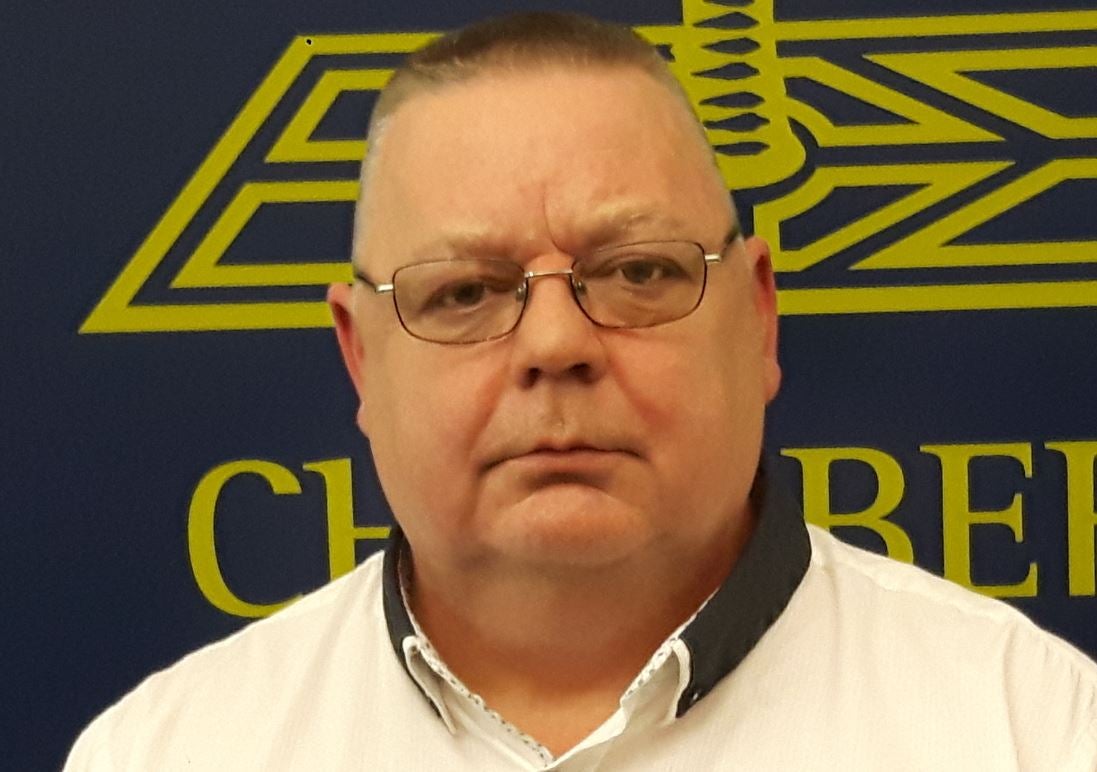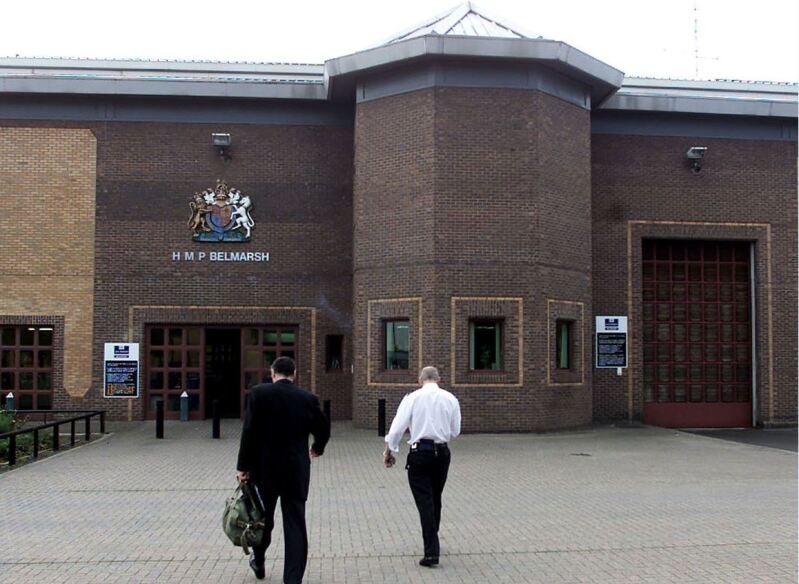
A prison officer whose life was ruined after his identity as a confidential source was revealed to police by publisher Trinity Mirror is taking his appeal against a conviction to the European Court.
Robert Norman’s lawyers say his case could lead to a landmark ruling with wide-ranging implications for the protection of journalistic sources in the UK.
And they have warned that the Court of Appeal ruling which upheld his conviction has given police and media owners a free reign to betray journalistic sources again in the future.
Norman (pictured above) was one of 34 public officials who were convicted after News International (now News UK) and Trinity Mirror decided to share details of confidential payments made to sources with the Met Police.
This led to Operation Elveden which, between 2011 and 2016, also resulted in 33 journalists being arrested and/or charged with none convicted.
Norman was jailed in 2015 for 20 months after being found guilty of the ancient common law offence of misconduct in a public office.
Garden Court Chambers represented Norman at Crown Court and Court of Appeal and is taking his case to the European Court on a pro-bono basis.
Speaking at a seminar held to highlight Norman’s case last night Keir Monteith, the barrister who represented him at the Court of Appeal, said: “Newspaper bosses handed over their own sources and journalists for prosecution.”
He noted the Law Commission recommended in 2016 that the offence under which Norman was charged should be abolished. The body said it was so “vague” and “unclear” that it was difficult to apply.
He said: “Operation Elveden was the first and hopefully the last time that that the state got into bed with the bosses of the nation’s newspapers.”
He said Norman was “turned over by the Mirror newspaper and the state for prosecution…his crime was to talk to the press and receive payment”.
He added: “Not so long ago police had to go to court to ask for the disclosure of journalists’ source details. It didn’t happen very often. When police made an application for discovery 99 out of 100 times the court upheld the source’s right to remain anonymous.
“That all changed with Operation Elveden.”
He said that by confirming Norman’s conviction the Court of Appeal had undermined the historic protection of journalists’ sources.
It had created a new principle, he said, of “media businesses deciding what sources to be turned over to the police”. He said it also meant that police can now bypass the courts by “alleging serious criminal acts by sources”.
“The case of Mr Norman gives the police the green light to make search requests and provides no source protection if the newspaper rolls over to the state’s demands.”
Norman was health and safety official for the Prison Officers’ Association at Belmarsh high security prison.

He first contacted the Daily Mirror in 2006 because he was concerned the prison was out of control. He was not paid for that story but subsequently received £10,684 for 40 pieces of information over the next five years.
As the Met Police began making widespread arrests of Sun journalists and their sources in 2012, Mirror publisher Trinity Mirror made its own search for evidence of payments by journalists to public officials. It then decided to volunteer the information to the Met Police under a Memorandum of Understanding which was apparently calculated to stave off the threat of corporate prosecution.
Norman, who also spoke at last night’s seminar, said: “I can’t believe I was made a criminal for speaking to the press. The payments weren’t why I did it, it was to protect the welfare of staff and prisoners.
“I broke a rule of my employment. I’m a trade unionist, I am allowed to speak to the press. No way on this Earth did I think I was breaking the law.
“This should not have happened to me and it should never happen to anyone for telling the truth.”
He said all the problems he warned about at the prison service caused by understaffing and cutbacks have continued: “The prison service is falling apart, it’s imploding.
“Would I do the same thing again to protect staff and prisoners? Yes I would, it meant the story got out about the dangers we face.”
The stories sold by Norman (which were all true) included:
- The suicide of a prisoner
- Suspension of a prison chaplain for inappropriate behaviour with prisoners
- The demands Abu Hamza had made on the prison service
- Costs incurred keeping Ipswich murder Stephen Wright in isolation
- A sexual relationship between a female warder and a prisoner
- Excessive expenditure on a staff party off site
- Attacks and plots to kill prison staff
- The prison failing security inspections.
Norman has previously spoken to Press Gazette in detail about his ordeal. Like other Elveden suspects he was subjected to a dawn raid on his home when he was arrested. In his case it involved 16 police officers.
Sun journalist Stephen Moyes spoke in support of Norman at last night’s event.
It was Moyes who, whilst working at the Daily Mirror and then News of the World, arranged the payments for stories. Moyes himself faced a criminal prosecution, which was later dropped.
He said: “He has lost his job, his home and his savings but he has not lost his dignity. Mr Norman is my opinion a thoroughly decent man. I believe Mr Norman’s crime in the eyes of those targeting him at the Old Bailey was being a whistleblower.”
He said that Norman’s concerns about staff cutbacks at Belmarsh fell on deaf ears internally and were ignored by his local MPs.
“His last throw of the dice was to use a newspaper to effect change and he decided to call the union-friendly Daily Mirror…It is for this reason that Mr Norman’s life has been ruined.”
Henry Blaxland QC is lead counsel in the European Court appeal which will mainly rely on Article 10 of the European Convention on Human Rights.
In the Bill Goodwin ruling of 1996 the European Court said: “The protection of journalistic sources is one of the basic conditions of press freedom.”
Blaxland is also going to argue that the conviction was in breach of Article 7 of the convention and the principle of “legal certainty”.
He said: “Under the offence of misconduct in public office it is not fundamentally certain for somebody to foresee they are going to commit a criminal offence.
“It wasn’t until Operation Elveden that somebody had been prosecuted under this offence for providing information. It had never happened before.”
He will also contend that: “Newspapers have failed to protect their sources as part of a deal done as part of the Elveden Inquiry. They were concerned they would be subject to prosecution. In order to avert that they decided to breach the absolutely fundamental principle of journalism, they disclosed their sources.”
The Court of Appeal ruled Trinity Mirror’s disclosure of information about Norman to the police was “voluntary” .
But Blaxland said: “It was voluntary in the sense that information provided by Judas Iscariot about Jesus was voluntary.”
The European Court is not expected to hear the case for another three years.
Blaxland said he was confident it would be deemed admissible because of the importance of the principle that journalistic sources are protected.
He said: “Until this case everyone who provided information to the press did so confident their confidentiality could be preserved. Now they can’t do so.”
Professor of media at Goldsmiths University Tim Crook said the custom of British journalists paying confidential sources for information went back more than a hundred years to at least to Charles Dickens.
He told last night’s seminar the payments to Norman amounted to £2,000 a year for his role as a “consultant informing on failings in the British prison system”. And he noted that they were considerably less than the sum paid by The Sunday Times and Sir Harry Evans for confidential documents relating to the Thalidomide scandal and by the Daily Telegraph for the database of MPs’ expenses claims.
He said the actions of the police and state in prosecuting Elveden sources amounted to hypocrisy given that the Met police alone paid out £5.2m to confidential sources between 2011 and 2016.
Crook said: “The Leveson Inquiry and its cheerleaders have condoned and encouraged the criminalisation of contact with journalists.”
Email pged@pressgazette.co.uk to point out mistakes, provide story tips or send in a letter for publication on our "Letters Page" blog
